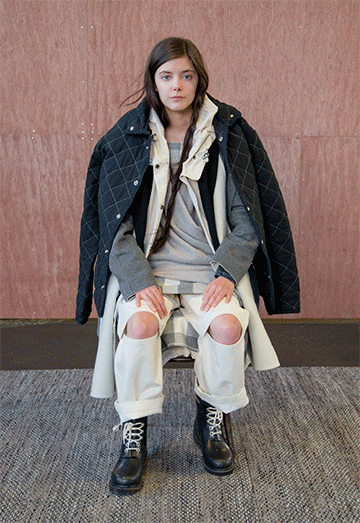
Editorial collaboration about sustainable fashion. Featuring international, national & local designers shot at FINEX.
CLIENT
Christine Taylor Creative (personal project)
LOCATION
Portland, Oregon
PROJECT
Technique & Personality: Sustainable Fashion Editorial Pitch to KINFOLK
ROLE
Art Director: Christine Taylor
The Commerce Behind the Project

Whoever made up the phrase "it takes a village" knew what they were talking about. In fashion editorial and advertising my teams are at their largest. I would like to give a special thanks for the support of the designers who contributed to this project.
DESIGNERS
Alexa Stark, Alexander Wang, Ancliffe Collection, BOET, Bottega Veneta, Brunello Cucinelli, Demimonde, Hand-Eye Supply, Ilse Jacobsen, Mario’s, M.Patmos, Nancy Stella Soto, Numinous Works, Pointer Brand, Portland Garment Factory, Rag & Bone, Reformation, Rowina Sartin, Seven Sisters, Six Seven, Stand Up Comedy, Straw Studios, Sydney Brown, Tiro Tiro, Utility Canvas.
Challenge
Create an exploratory visual and narrative investigation using research on the backlash against fast living, fast smart buying, and 'seasonless', 'slow fashion' commerce.
Insights
• Slow fashion is suggested to be the opposite of fast fashion; however, it has no formal definition. It is a status given to retailers who produce long-lasting clothing, that are not designing collections in response to quick-changing fashion trends.
• The slow fashion retailer is focused on quality materials, classic design, and multi-seasonal use. They want you to collect and build your wardrobe to last your lifetime rather than buy apparel made with low-quality materials, that sit unused in your closet on their way to the landfill.
•15-29 year-olds are the fastest growing fashion consumer demographic.
• While women and men are buying twice as much clothing as in 1995, we now see that price-led marketing strategies are not what works for selling.
• We are in a new era of fashion consumers, one involving awareness regarding the consumer decision processes and human stories shown in original content.
• Demographics are not the only relevant way to identify a brand anymore. The slow fashion buyer is interested in brands that take into account their values, interests, and lifestyles.
• Those who instill slow fashion values hope to improve their quality of life.

Here's What I Did
 |  |  |  |  |  |
|---|---|---|---|---|---|
 |  |  |  |  |


